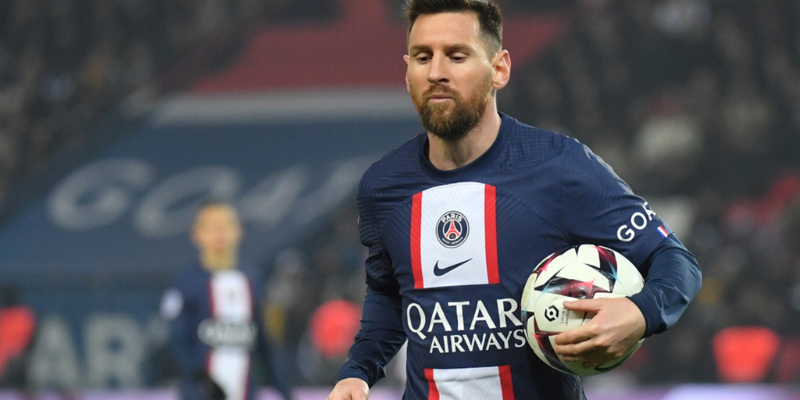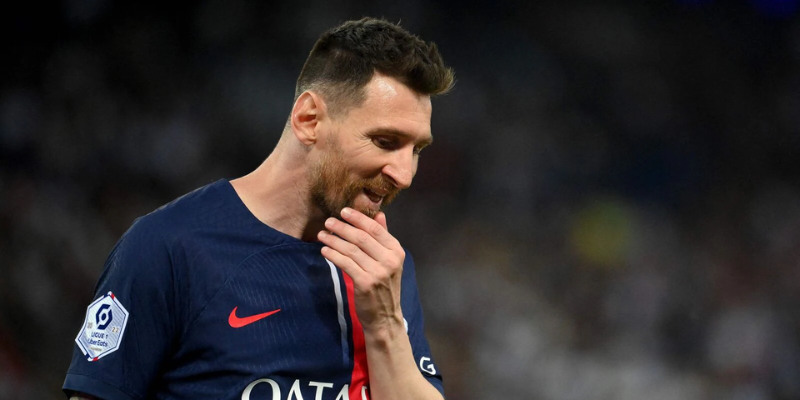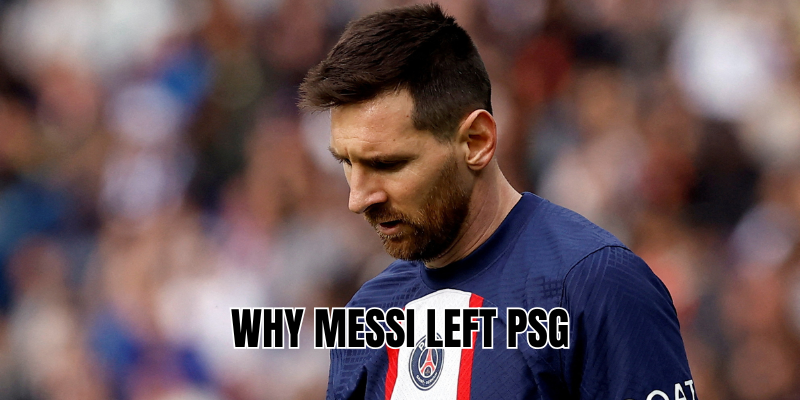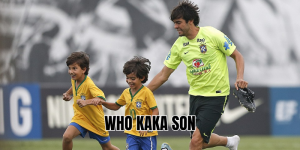From the moment Messi swapped Barcelona’s blaugrana for Paris’ bleu et rouge in 2021, fans and pundits alike have asked: why messi left psg. Two seasons later, his departure in 2023 sent shockwaves—not because it was unexpected, but because it was messy. In this article, QuraGoal will guide you through the tangled threads behind Messi’s Paris exit: the footballing disappointments, the institutional strain, the personalities, and the emotional cost.
The contract that was never solid

When Messi arrived in Paris, he signed a two-year deal with an option for a third.
But that third-year option would turn into a poisoned clause. While early reports suggested interest, the club’s broader strategy began shifting—less tolerance for superstar excesses, more focus on financial balancing.
In May 2023, PSG announced they would not take up the extension, effectively ending Messi’s time in Paris when his contract expired. The club chose not to offer him a new deal, signaling a desire to move away from the “galáctico” era.
Thus, the financial and contractual breakdown was perhaps the first brick in the wall between Messi and PSG.
On-field disillusionment and failure in Europe
Messi came with ambitious dreams: bring PSG to Champions League glory. But despite two Ligue 1 titles in his two seasons, European success remained elusive.
- In both seasons, PSG stumbled at the Round of 16 in the Champions League, failing to match the semifinal runs the club hoped to replicate.
- There were no domestic cups to show for his time, and some matches highlighted mismatches in the squad and tactical inconsistencies.
- Messi himself later admitted he struggled to enjoy training sessions and matches in Paris, feeling he wasn’t able to express his best version.
These footballing frustrations piled up. For a player who has measured legacy in trophies, the disconnect between ambition and reality stung dee.
The discipline clash: “final straw” incidents

Even legendary players must adhere to club discipline. In April/May 2023, tensions boiled over.
Messi missed a training session without PSG’s permission, traveling to Saudi Arabia for a commercial commitment. The club suspended him for two weeks, fined him, and barred him from first-team activities. It was an unprecedented move for PSG’s leadership—to discipline their marquee signing so publicly.
That suspension has often been framed as the final straw. It symbolized a breakdown in trust: PSG showing they wouldn’t tolerate special treatment, Messi accepting the role that even the greatest wasn’t above internal rules.
In that moment, the relationship fractured beyond repair.
Personal life, adaptation, and family factors
Footballers aren’t machines—they live lives off the pitch, too. Messi and his family struggled to settle smoothly in Paris:
- Reports emerged that his children were not registered at schools in Paris for the next season—suggesting they did not intend to stay.
- Messi repeatedly alluded to difficulty adapting to the league, training regime, and overall environment, calling his time in Paris a period he “didn’t enjoy.”
- Emotionally, returning to Barcelona had always tugged at him, though financial and regulatory constraints made that return complicated.
These personal threads—homesickness, discomfort, family priorities—wove quietly but powerfully into his decision to leave.
Fan pressure, club image, and shifting PSG identity
In a club obsessed with image, public sentiment matters. Over the two seasons, PSG’s fans expressed frustration—especially after the team’s European exits. Some turned against Messi, blaming him (and others) for underperformance.
PSG’s leadership, too, seemed to grow weary of the superstar-driven model. The club hinted it would pivot to youth, greater balance, and less tolerance for vanity projects. There was talk that “bling-bling” culture should evolve into a more disciplined, sustainable structure.
Thus, Messi’s departure aligned with a larger institutional soul-searching at the club: perhaps they decided both the player and the philosophy were no longer in sync.
The decision to go to Inter Miami and how “why messi left psg” finds answer

Once PSG confirmed they would not renew, Messi had choices—return to Barcelona, go to Saudi Arabia, or try something new. Ultimately, he signed with Inter Miami in MLS. Why? Because he wanted a fresh project, a lighter environment, and more joy in his day-to-day football life.
He later said the decision was driven by his unhappy spell at PSG—the lack of enjoyment in training and matches pushed him away. The move to MLS also offered freedom.
So when someone types why messi left psg, the answer is not a single phrase but a confluence: contractual impasse, disappointment in Europe, disciplinary rupture, personal discontent, and strategic divergence with the club’s future.
Conclusion
Why messi left psg is a story of broken bridges: ambition versus reality, ego versus discipline, home versus alienation. His Paris chapter, while glittering in parts, failed to stitch together the dee, Messi has sought peace—and perhaps, resurrection in a different narrative.
If you’re curious about what came next—with Messi in MLS, how his performance compares, or how PSG’s direction changed post-Messi—stay tuned with QuraGoal for full profiles, match reviews, and analysis.




